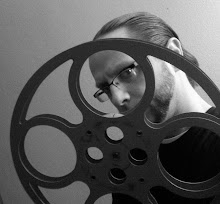All sports movies have an underdog. There is nothing better
to root for or to hope for than a character that is going up against
insurmountable odds and must fight their way out of the muck. Boxing movies
over the years have had to battle hard to get out of the old template of the
underdog story, and in the ring of SOUTHPAW, the fight has never been more
difficult.
Billy Hope (Jake Gyllenhall) is on top of the world as a light-heavyweight
champion with his wife Maureen (Rachel McAdams) and their young daughter Leila
(Oona Laurence). When an unfortunate incident causes Billy to lose everything,
including custody of his daughter, he starts over from the ground-up with a new
trainer, Titus (Forest Whitaker).
SOUTHPAW is a gritty film, based in our own reality, which
goes through great strides to separate itself from the standard sports/underdog
fare by focusing a lot of time on the family element. The film is at its best
when the screentime is dedicated to Billy and his daughter (they are truly
tear-inducing), and the motivation that Billy has to overcome his issues in and
out of the ring is genuine and works very well.
Where SOUTHPAW begins to stumble around the ring is with the
structure of the storytelling. With so little plot to work with (get your act
together, win the fight, get your daughter back), director Antoine Fuqua,
working from a script by Kurt Sutter, shifts the weight of the story onto the
characters. Which isn’t a terrible idea on paper, but the film falls into a
dreadful redundant pattern; every character, from Billy to his daughter to his
new trainer, goes through an arc where they all exclaim to the camera that they
are absolutely not going to do something,
only for a scene or two to pass where they come to their senses and wind up
doing it anyway. It’s predictable as the turn every character makes can be seen
as easy as a windmill punch. On top of this, SOUTHPAW also borrows heavily from
many boxing films of the past, and although the family element is strong, the
other elements are little too familiar.
Director Antoine Fuqua gets great performances out of his
actors and his camera does a marvelous job in capturing the grimness of the
story. The fight scenes are brutal
and done without much artsy flair, but instead presented in all of their raw glory.
Fuqua and the script doesn’t seem to show much restraint in many areas; with
the biggest being all the bad things that happens to Billy within the first 45
minutes. For a film that tries to be saturated in reality, everything that
happens to Billy is a little tough to buy. The score by the late great James Horner
(the film is dedicated to his memory), sounds like its good but it often gets
buried amongst the punching noise and the annoying rap music.
Jake Gyllenhall packs on the pounds of muscle and certainly
looks the part of a fighter, and his acting chops match his new physique.
Gyllenhall goes through a wide range of emotions and certainly seems to have
grown up as an actor. His scenes with young Oona Laurence are the highlights of
the film, as the young actress keeps up with everyone else and becomes the
moral center of the story. Forest Whitaker is his normal brilliant self, even
though his character feels a little shortchanged as we get the feeling there is
a lot more to him that we never see. Naomie Harris turns in an effective role
as a social worker, and Rachel McAdams is memorable in her limited screen time.
Rapper 50 Cent appears as a Don King-like fight promoter, and whoever thought
that was a good idea needs to get punched in the face.
The finale, which is set in a climactic fight in glitzy Las
Vegas and presented through real-life HBO coverage with announcers, is
unfortunately a bit of a snore and doesn’t get do much until the very end.
Probably the biggest flaw the final fight has is that Billy doesn’t seem to
draw on any of the lessons he should have learned through the course of the
film, which makes us wonder why he had to go through all that shit in the first
place. The eventual emotional payoff is fair, but like any split-decision,
feels like it could have been more. SOUTHPAW swings hard but doesn’t connect
enough.
BOTTOM LINE: Rent it







